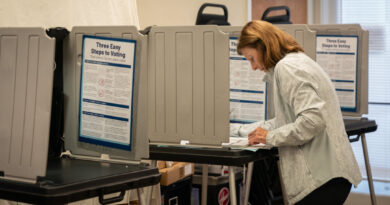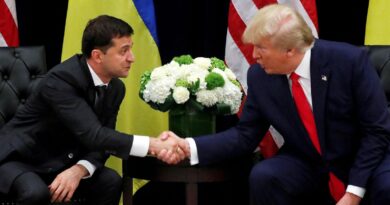Trump’s Trade Advisor Navarro Cautions About Chinese Currency Manipulation
“I don’t believe the Trump Treasury Department would be particularly fond of Chinese currency manipulation,” stated Peter Navarro.
Peter Navarro, the incoming senior counselor for trade and manufacturing in the Trump administration, informed Reuters on Dec. 12 that the new Treasury Department would respond firmly to any Chinese attempts at currency manipulation.
Back in 2019, the first Trump administration labeled China a currency manipulator—the first such designation since 1994—but this status was revoked a year later. The Chinese government has denied these allegations.
“I don’t believe the Trump Treasury Department would welcome Chinese currency manipulation very fondly,” Navarro remarked. “China’s track record as a currency manipulator is well-documented.”
Navarro previously served as a senior trade adviser during the first Trump administration.
He mentioned that the White House would not interfere with the forthcoming Treasury Department’s review of currency practices.
“We do not support countries that seek to manipulate their currencies for a competitive edge, and we pay close attention and respond strongly when we observe such practices,” Yellen remarked, refraining from naming any specific nation.
According to reports from Reuters, Chinese officials are contemplating devaluing the yuan in anticipation of new tariffs that may be enacted by a second Trump administration.
A depreciation of the yuan would make Chinese exports less expensive, mitigating the effects of U.S. tariffs on China.
Sources have discussed these matters with Reuters under the condition of anonymity, and official agencies have not provided comments. Nevertheless, Chinese Communist Party (CCP) officials have indicated in a recent high-level meeting that they plan to implement “appropriately loose” monetary adjustments next year for the first time in 14 years.
Fred Neumann, chief Asia economist at HSBC, noted that such a devaluation could trigger a chain reaction, causing other countries to impose import restrictions on China, ultimately harming the Chinese economy.
Forecasts from analysts suggest the yuan may depreciate against the dollar next year, with rates fluctuating in relation to the impact of U.S. tariffs.
The Treasury Department asserted in an August 2019 statement that China has a long history of substantial currency manipulation, which has been employed to secure “an unfair competitive advantage in international trade.”
The statement highlighted a public declaration from the People’s Bank of China, wherein Chinese officials acknowledged they possess various tools to influence the foreign exchange market—a clear admission of China’s manipulation of the yuan against the dollar with intentions to continue such practices.
On August 5, 2019, the yuan fell by 1.4 percent shortly after Trump declared a 10 percent tariff on $300 billion worth of Chinese imports.
Reuters contributed to this report.





